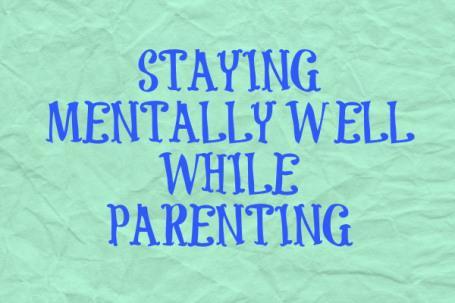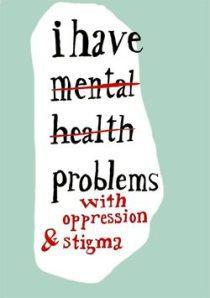
Parenting is a difficult job and a juggling act no matter what. It requires balancing your own needs with those of your child. It involves managing your time, having adequate resources and supporting your child. For parents coping with a mental illness, these issues are amplified. When you’re living with any kind of chronic or severe illness, like mental illness, diabetes or cancer, there are times when your functioning will be compromised by that illness. But that doesn’t mean that you can’t have a healthy family. Here are some pointers to help you overcome common challenges.
Consistency is key for kids, but with the ebbs and flows of mental illness, this also can be compromised. Kids can feel lonely, become confused and blame themselves. The biggest challenge is stigma. Because our society tends to hold negative attitudes and beliefs about mental illness, it can be difficult to acknowledge that you’re struggling and to seek treatment. Stigma also adds more pressure on parents to be the perfect caregiver. Parents feel as if others are watching them a little more closely and may have negative assumptions.
Tips for Parents with a Mental Illness
There are many things you can do to parent well while coping with mental illness. Here are tips to help.
- Focus on the whole family. “From my perspective, mental health is family health,” which means paying attention to each other’s well-being. Watching for red flags in kids becomes especially important because research has shown that kids with parents with serious mental illness are at risk for developing mental illness themselves, both due to genetic and environmental issues.
- Engage in treatment. The best predictor of kid functioning is parent functioning, Even if you don’t want to seek help or get better for yourself, do it for your kids. Model healthy choices. Remember that acknowledging that you need help and seeking help are signs of strength.
- Connect with others. Mental illness can be isolating. But isolation is detrimental to both parents and kids. All the experts emphasized the importance of surrounding yourself with supportive individuals, whether that’s family, a spiritual leader, school counselor, mental health professional or parents with similar experiences. Find people who understand your circumstance and respect who you are and your goals for your family.
- Troubleshoot. Think through the way your illness makes you think, feel and act. This helps to anticipate the times when you’re not thinking clearly and to be ready in the moment to keep your child safe, she said.
- Create a crisis plan. During a calm time, sit down with your therapist or doctor and establish a plan of action for emergencies, such as being admitted to a hospital. Consider concerns like where your kids will stay and how they’ll get to school.
- Enroll kids in activities. While it can be tough keeping up with everyone’s schedule, especially when you’re running to your own appointments, getting kids involved in extracurricular activities can be beneficial. This gives kids another opportunity to connect with healthy peers and adults.
- Give the best time to your kids. If vacations cause anxiety, plan more ‘staycations.’ If weeknights are depressing but weekends are brighter, make quality family time on Saturdays,” he said.Learn to understand your illness, its triggers and cycles, and apply this knowledge to your schedule.
- Recognize your strengths. When you’re struggling with a mental illness, your strengths are the last thing on your mind. Especially if you suffer from depression, your thought patterns probably sound more like this: “I can’t do anything right, this day isn’t going to go well, I’m never going to be a good mom.” But try to celebrate your strengths ( list three things you like about yourself). You can build on strengths, but you can’t build on failure. Plus, this is a positive activity to model to your children.
- Practice your passions. Both parenting and mental illness can be all-consuming, leading individuals to lose touch with the unique, vital, passionate parts of themselves. Engage in activities that go “beyond the roles of parent and patient,” whether that’s exercise, creativity, travel, learning, bungee jumping — whatever reinforces the unique parts of your identity.

Websites that might help:
http://www.mamasmiles.com/parenting-depression-and-ptsd-parenting-with-mental-illness/
http://www.nami.org/template.cfm?section=For_Parents,_Caregivers,_and_Youth
http://www.mentalhealthamerica.net/parenting




